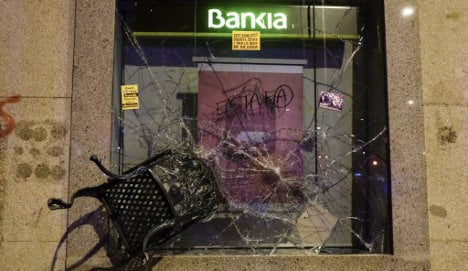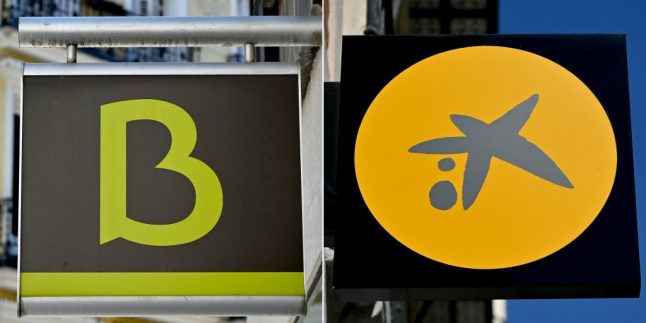Net profit in the first six months of 2014 hit €431 million ($579 million) the bank said in a statement, compared to €291 million a year ago.
In the second quarter of the year, net profit almost doubled to €245 million, up from €126 million in the same period in 2013.
"These results confirm that the bank is on the right track," said BFA-Bankia Group chairman Jose Ignacio Goirigolzarri in a statement.
"Core banking business revenue has improved, cost reduction efforts are continuing, and both the balance of non-performing loans and the non-performing loan ratio have been reduced."
Bankia's surge in profit comes amid growing signs that Spain, with the eurozone's fourth-biggest economy, is gaining momentum after a property boom burst and floored growth.
Earlier this month Spain's central bank said the economy grew at its strongest rate for six years in the second quarter, expanding by 0.5 percent from the previous three months.
Bankia said its ratio of non-performing loans — cases in which borrowers have fallen behind or defaulted on payments — to total loans fell to 14.03 percent in the second quarter of 2014, from 14.65 percent at the end of December.
First-half results was also helped by an 11-percent reduction in operating expenses in the first half compared to a year ago.
"The fact that Bankia managed to increase customer deposits in the quarter and gain market share with a smaller branch network marks a qualitative change," said Goirigolzarri.
Investors cheered the result, sending the bank's shares up 1.17 percent against a 0.24 percent decline in Madrid's main index.
Madrid sold a 7.5 percent stake of Bankia in February in its first step toward privatising the bank, which was formed by merging seven of Spain's troubled banks in 2010.
Chief executive Jose Sevilla said it was up to the state to decide when and how it would sell the rest of its 61 percent stake in Bankia.




 Please whitelist us to continue reading.
Please whitelist us to continue reading.
Member comments